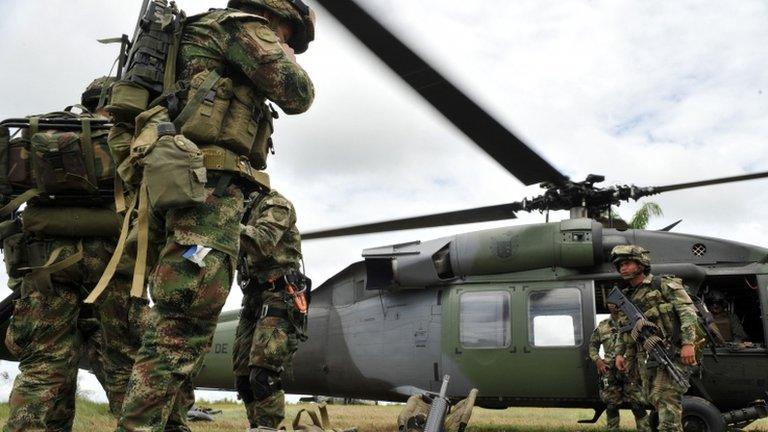Colombia's top army officers 'knew of extrajudicial killings'
- Published
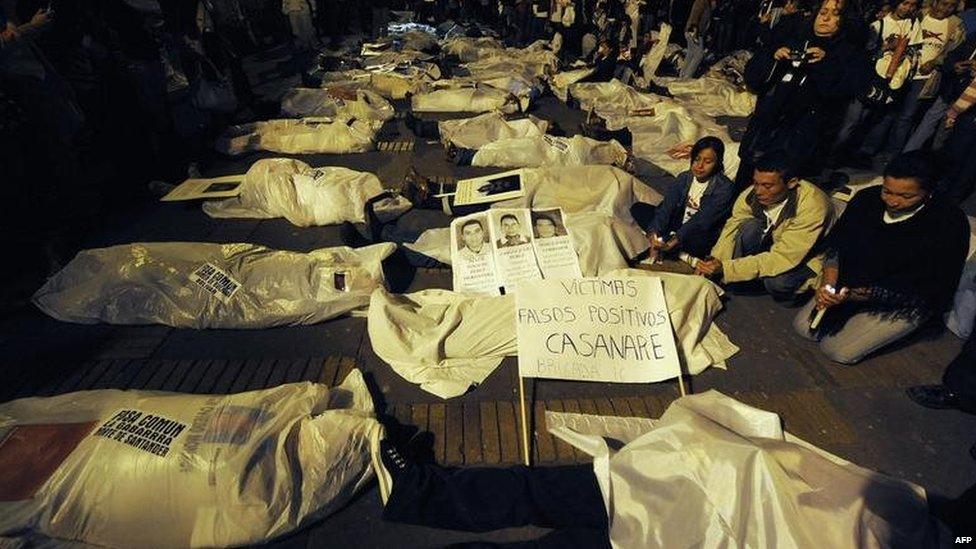
News of the killing by the army of civilians who were then passed off as rebels or paramilitaries caused outrage in Colombia
Human Rights Watch has said that it has seen evidence suggesting high-ranking army officers in Colombia knew of the extrajudicial killings of civilians.
More than 800 members of the Colombian army have been jailed so far in the "false positive" scandal.
Civilians were murdered and their bodies passed off as those of rebels or paramilitaries to boost the army's combat kill rate.
Colombia's attorney general is investigating thousands more cases.
All of them are alleged to have happened between 2002 and 2008, when the scandal broke.
Key witness
In a report published on Wednesday, external, Human Rights Watch (HRW) said that it had seen evidence strongly suggesting that "numerous generals and colonels knew or should have known about 'false positive' killings, and may have ordered or otherwise actively furthered them".
Most of the soldiers convicted so far in connection with the scandal are of low rank, although some did command units or even battalions.
The rights group said that it had reviewed transcripts or recordings of testimony provided to prosecutors directly accusing several of Colombia's highest ranking officers of "having known of, planned, or attempted to facilitate false positive killings while holding those positions".
Among those named in the report as those who knew or should have known of the crimes are the former head of the Joint Caribbean Command, retired Gen Gonzalez Pena and the former army commander, retired Gen Mario Montoya.
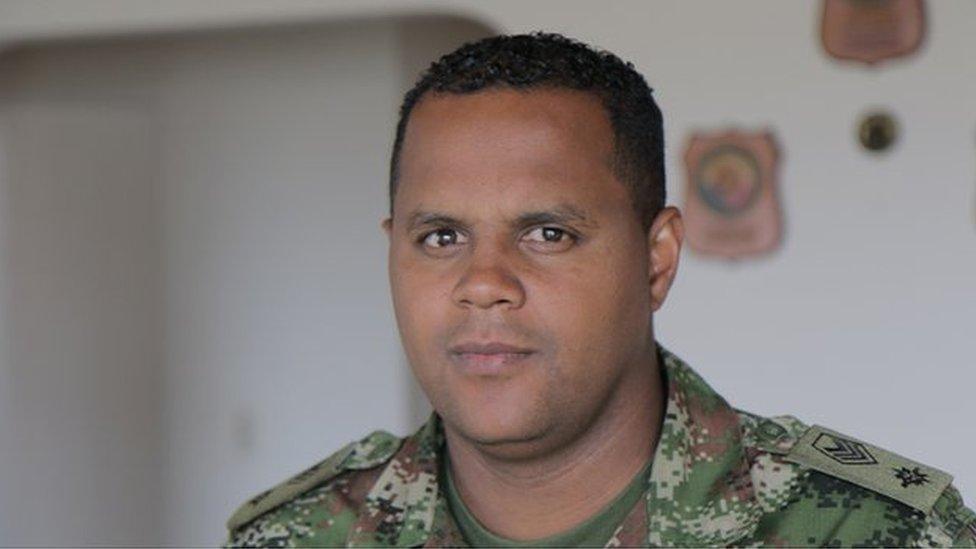
Sgt Carlos Eduardo Mora is a key witness in the "false positives" scandal
One of the brigades implicated by the evidence is the 15th Mobile Brigade.
According to the report, the brigade is under investigation for 38 extrajudicial killings allegedly committed between 2006 and 2008.
Sgt Carlos Eduardo Mora was a member of the 15th Mobile Brigade and has been a key witness.
In 2007, he was working for the unit's intelligence division. He told the BBC that when he noticed suspicious activities he tried to alert some of his superiors.
Disbanded
He said that his superiors warned him that his family would be killed if he told anyone about what he knew.
Despite the threat, Sgt Mora reported his suspicions to the attorney general's office at the end of 2008.
The evidence he provided led to the conviction of a number of members of his former brigade.
Its former chief of operations, Jesus Rincon Amado, was sentenced to 35 years in jail for a murder committed in 2007.
Col Santiago Herrera Fajardo, who commanded the brigade, is currently on trial.
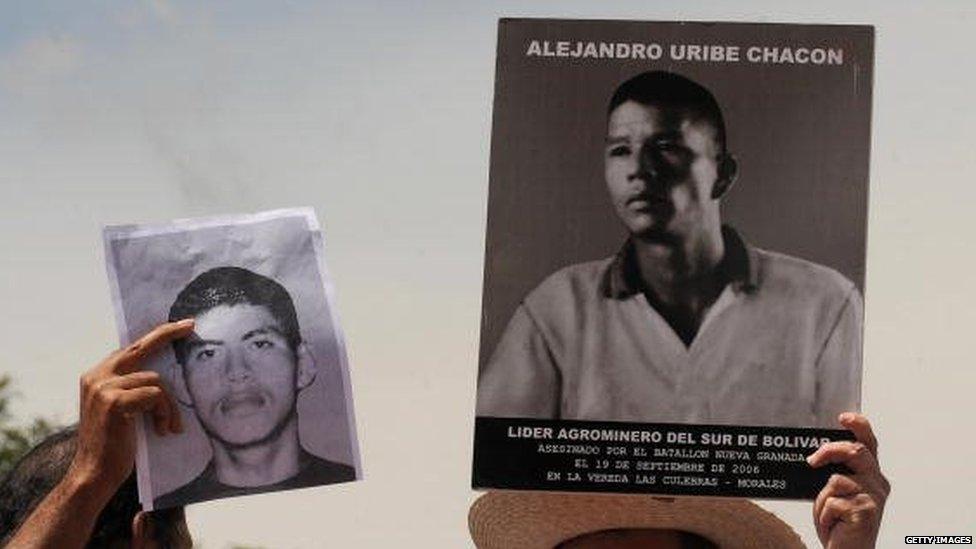
The victims of the "false positives" were often poor farmers who were lured with the promise of work to remote places where they would be killed
Prosecutors are also investigating members of the 4th Brigade for at least 44 alleged extrajudicial killings carried out between 2001 and 2003.
During that time, the battalion was under the command of Gen Mario Montoya, who was later promoted to lead the Colombian Army.
Earlier this week, the attorney general's office announced that it had summoned the now retired Gen Montoya and three other generals to give evidence in July.
According to the HRW report, the battalions which were led at the time by the current commanders of the Colombian army, Gen Jaime Lasprilla, and of the armed forces, Gen Juan Pablo Rodriguez, are also among those being investigated.
Continued threats
Colombia's President Juan Manuel Santos defended the two officers.
He said that both men had shown him documents which demonstrate that "there is not one single investigation against" them.
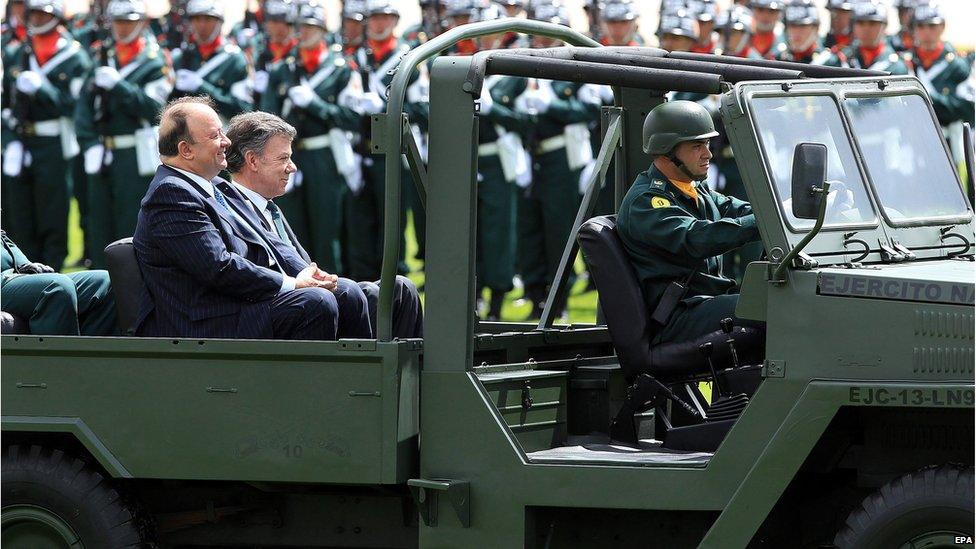
President Santos (right) defended both generals in a speech in front of members of the armed forces on Wednesday
President Santos said that although wrongdoing should be punished, that the army should not be "tarnished".
HRW says the investigations have been hampered by threats and attacks on key witnesses.
A ministry of defence official told the BBC that they were "providing every possible protection" to the witnesses.
Lt Col Carlos Javier Soler Parra said that the government had put a protection scheme in place for members of the armed forces who have acted as witnesses.
But Sgt Mora has said that he fears for his life.
'3,700 killings'
In its report, HRW also quotes prosecutors as saying that members of the armed forces "placed obstacles in the way of obtaining files crucial to their investigations".
In a statement, the army denied this, arguing that it had put teams in place specifically tasked with providing the required information to investigators.
"We are the first ones interested in clarifying the facts," it said.
Regardless of the obstacles, the attorney general's office is currently investigating at least 3,700 extrajudicial killings that took place within more than 180 battalions and other tactical units, according to HRW.
- Published13 April 2015
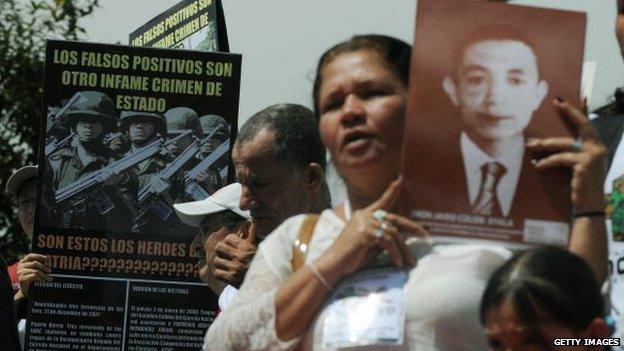
- Published19 February 2014
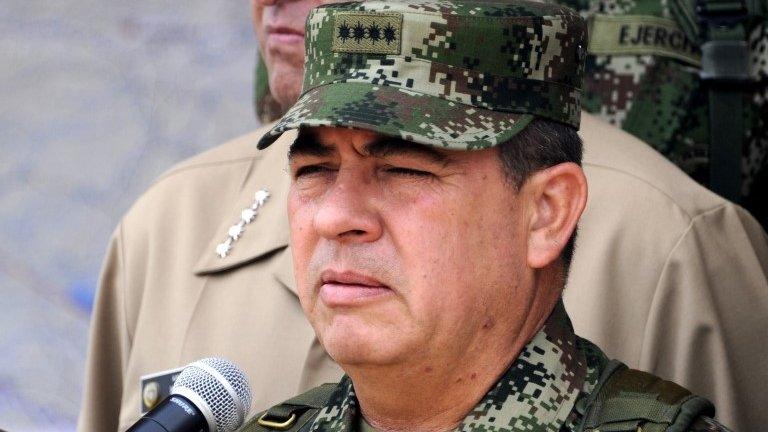
- Published26 May 2012
